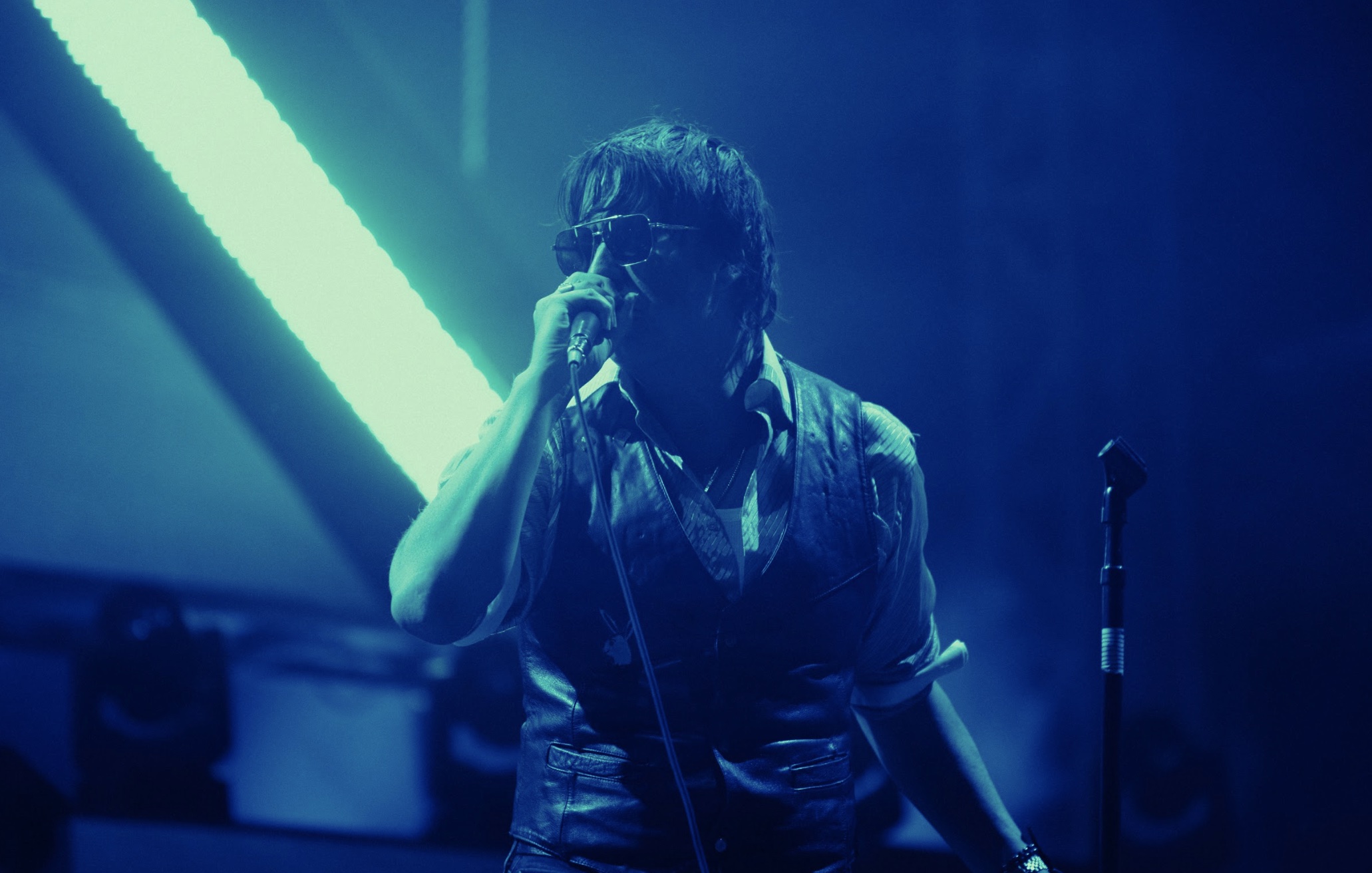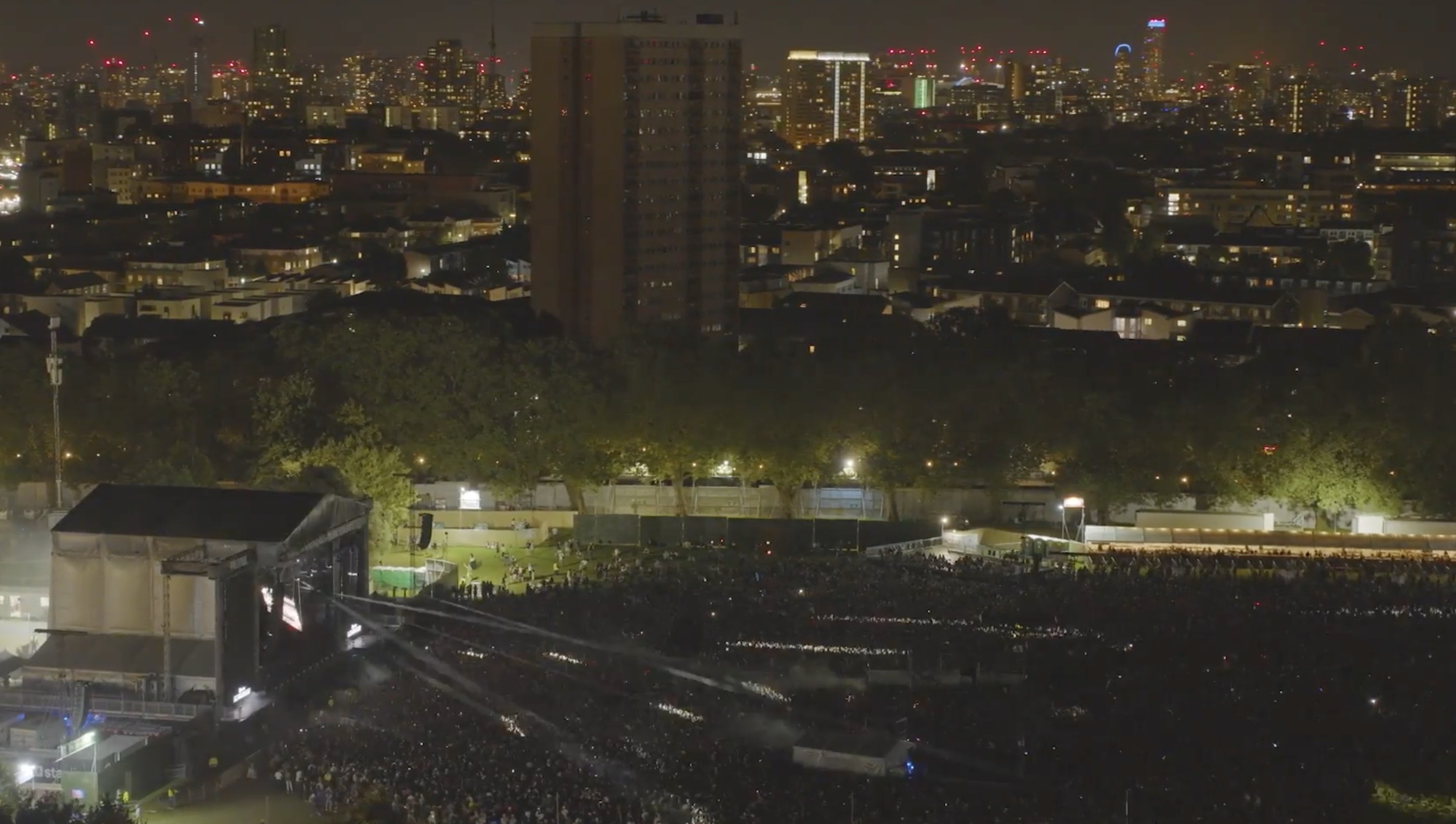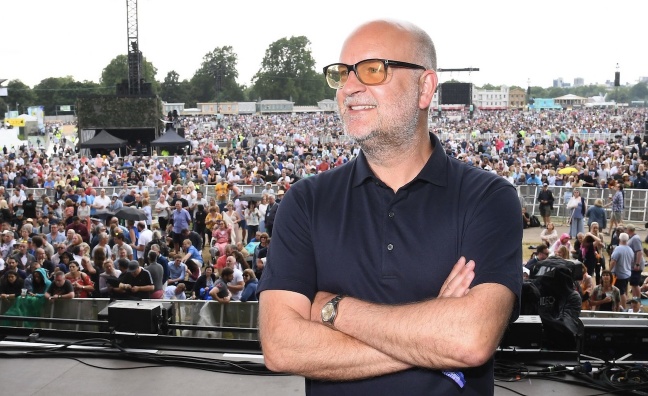Towards the end of August on a Wednesday evening, Jim King, CEO of European festivals for AEG, was watching Billie Eilish perform on a stage in a park in a bend of the river Seine, just east of Paris.
“It was a great performance that really showed the progress the Rock En Seine festival has made in the last couple of years,” he says, speaking to Music Week less than seven days later. “When we took it over, with our local partner, we had to reimagine what we wanted Rock En Seine to be, post-Covid. From bookings, to marketing, to sponsorships and partnerships, it needed a complete overhaul. Now I would say it’s one of the jewels in our festival crown.”
It has been a summer of such gems for King and for the European festival wing of AEG. In addition to Rock En Seine, the company staged American Express Presents BST Hyde Park and Luno Presents All Points East in London, not to mention the Eden Sessions in Cornwall and Forwards Festival in Bristol.
“It has been our most successful year ever,” says King. “And that’s coming on top of last year, which was our previous most successful year ever. We’re still growing and that’s the most exciting thing as I look back across this summer and forwards to next year.”
The quality of artists we’ve had has always been great, but we’ve continued to build on that with an ever-greater portfolio of headliners
Jim King
Focus solely on All Points East and you’ll find that 183 artists were booked to play and two new sponsorship partners, beauty giant L’Oreal Paris and high performance car brand Cupra, came on board.
“We have sold more tickets than ever before,” says King. “The quality of artists we’ve had has always been great, but we’ve continued to build on that with an ever-greater portfolio of headliners. Then there’s the commercial side of things, which is an important metric. We’re seeing more sponsors come to live music, certainly with the events we’re running.”
Sponsorship is “a commercially important advantage”, he says, because it means better events with bigger line-ups.
“And when commercial partners have so many other options in front of them, whether that’s other cultural events or - certainly - sport, that they are choosing to double down and anchor themselves in live music. That’s a really positive sign for our whole industry. We offer sponsors something very unique, the chance to be part of the emotional experience between an artist and their fan.”
As the back-to-school posters fill the shops, King jokes that it’s probably time he and his team took a holiday. But, before that, we asked him to sit down and look back over his festival summer.

The Strokes at All Points East
First up, what has been your biggest lesson this year?
“It’s a tough, competitive market. I would say that London is the most competitive of all, I struggle to think of another one that could top it. We start every year knowing it’s going to be difficult. Even looking at booking the acts, the acts have so much choice of where to play. Now, that’s great for fans, but it makes it a challenge for us. We always remind everybody that we don’t select the artists, the artists choose us, so our job is to present the best reasons for the artist to come and play at BST Hyde Park or All Points East or Forwards. We have to be at the top of our game for them to choose us.”
In the grand scheme of things, inner-city festivals are a relatively new idea, so why does the city festival work?
“Well, I think all festivals are working, but there’s certainly a large growth in the city-based outdoor space. The live industry as a whole has grown significantly in the last 10 to 15 years and the demand for live music experiences continues throughout the summer. In cities, you don’t have to travel out as you would for a more rural or camping-based experience. London is particularly blessed with great parks and great transport. The ability to get in and out and get home again is very appealing to a large number of music fans. That’s part of the strength, that the surrounding infrastructure is strong too. The biggest factor, in terms of growth and success, is artists making themselves available and touring in the summer. Whilst that continues, then I think our outdoor live industry will remain very strong, but it is very much dependent on artists coming into Europe in those months. Obviously we have a strong UK industry, with amazing UK-based artists, but there’s the added value of international acts coming into the marketplace, especially those who don’t tour that often. People will keep buying tickets because they don’t know when they will be able to see their favourite artist again, it might be years.”
There were some reports of issues at All Points East this year. Why do you think that happens and what are you doing to solve it?
“I don’t think there are sound issues. If you look at the work we’ve done in Hyde Park for BST, there certainly were sound issues when we took over, it’s well documented, with artists playing at levels and at a quality that wasn’t sufficient for the way in which they wanted to project their art. And, now, if you look at the sound levels and quality of BST it’s been extremely high, with artists playing at 98 DB to 100 DB, which by any metric is good quality… But, with reference to All Points East, it was a great disappointment for us that this was reported as being an issue for The Strokes. For me, it was a surprise, because I listened to the whole show and stood in at least a dozen different places and didn’t experience what a small number of people were saying was inferior sound quality. I had the benefit of reading the report which said The Strokes played at 100 DB throughout nearly all of their set. The last thing we want is anyone having a bad experience, especially when seeing one of their favourite bands, but it was the only report out of 183 artists playing across six shows. I did see the numbers and they were playing very, very loud. How the band mixes their shows is obviously up to them. It’s unfortunate, but one act out of 183.”
People will keep buying tickets because they don’t know when they will be able to see their favourite artist again, it might be years
Jim King
At BST this year, the headliners included Bruce Springtseen, Guns N’ Roses and Lana Del Rey. How do you feel it delivered?
“Last year, when we had the Rolling Stones, Elton John, Adele, Pearl Jam, Duran Duran and The Eagles, I would have thought it would be difficult to surpass that. But this was certainly equal, if not [better], as an overall aggregate. For the event to continue to attract that quality of the world's biggest artists is obviously the most important challenge that we face. I think we're very fortunate that the majority of the world's artists want to come and play at Hyde Park. We have to be confident that every year will be a strong year.”
You also managed to book Aphex Twin twice, for All Points East and Forwards, can you give us some insight into how that double booking happened?
“He’s an incredible artist and incredibly important to our industry. He sounds amazing and looks incredible and you can see how much time and effort he invests in production, with the lights and video and how that works with the sound. The approach we take is to offer artists any number of shows we’re working on throughout the summer and, we wouldn’t force them, but we hope they will choose more than one event. It’s designed, in terms of routing and dates, so that acts can pick from a number of shows. We hope the dots join up in terms of how artists and their representatives want to route their dates. We also include Kalorama festival in Lisbon and Cala Mijas in Malaga, who we work very closely with, and artists can fly in and do two or three weekends. If they are able to come to Europe at the end of the summer, they could go through the schedule and pick them all.”

Aphex Twin from above at Field Day for All Points East
What did you make of the argument that Music Venue Trust CEO Mark Davyd made in his Music Week column that with all the big shows and festivals that happened in London this summer, there was less space for grassroots acts and venues to sell tickets?
“Grassroots venues face a very hostile market and the fact they’re given very little assistance is a great stain on our industry. I think they're heavily penalised in many financial and operating ways. I think they should be paying much lower tax rate thresholds and VAT. The PRS and all other performing society establishments should give them a much bigger break. I would fully accept the point that the gateway for young artists to come through is a challenging one, because the number of those venues is not as plentiful as it should be. But on the positive side I would say the outdoor and festival side does open up a lot of spaces for those artists. We have stages which are all about young, new, upcoming artists and all of the early slots on all of our stages, almost exclusively, are from artists in that category as well. From a festival or outdoor event perspective, I certainly see a great deal of opportunity. Outside of summer, for the other 40 weeks of the year, it requires a great deal of stimulation in order for that market to be protected.”
In terms of tickets, where do you stand on both pricing and ease of the buying process? Are things too difficult for fans?
“In terms of process, I think the customer journey has largely improved with mobile ticketing. I think it’s safe and everybody lives and manages their life through their handheld device. In terms of availability, if five million people want to see an artist and the artist can only play two nights then a lot of people will be disappointed. That’s the nature of supply and demand and I can’t fix that unless an artist is prepared to play for 20 nights. In terms of price, I think we concentrate on price far too much and we should look at value. If you look at the value of the experience, which many artists and many events offer, I think it matches up pretty well against price. If it doesn't, they should be called out for it.”
We concentrate too much on price and we should look at value, if they don't match up then events should be called out
Jim King
Do you have any regrets about this summer? Any acts you missed out on?
“Promoters always have regrets, we always will miss out on some of the artists that we want. That’s the nature of what we do. I don’t think we’re ever completely happy. That is the life of the promoter. Obviously, I am speaking in jest and we have shows that are the most enlightening and rewarding experiences that anybody could ever hope to be a part of. But missing out just makes you want to get it next year.”
Finally, why do you think your festivals matter to the rest of the industry?
“This is an industry of coexistence. I think a harmonious industry is far stronger. We try to maintain that across our values and how we want to present ourselves. I don't think we ask for crazy exclusivities, or unnecessarily ask for restrictions on artists. We work collaboratively within the UK as much as we possibly can. I would hope that agents, managers and artists, when they play our festivals, would see them as really important hubs or anchors to be able to go off and operate in other markets.”
Words: Anna Fielding












